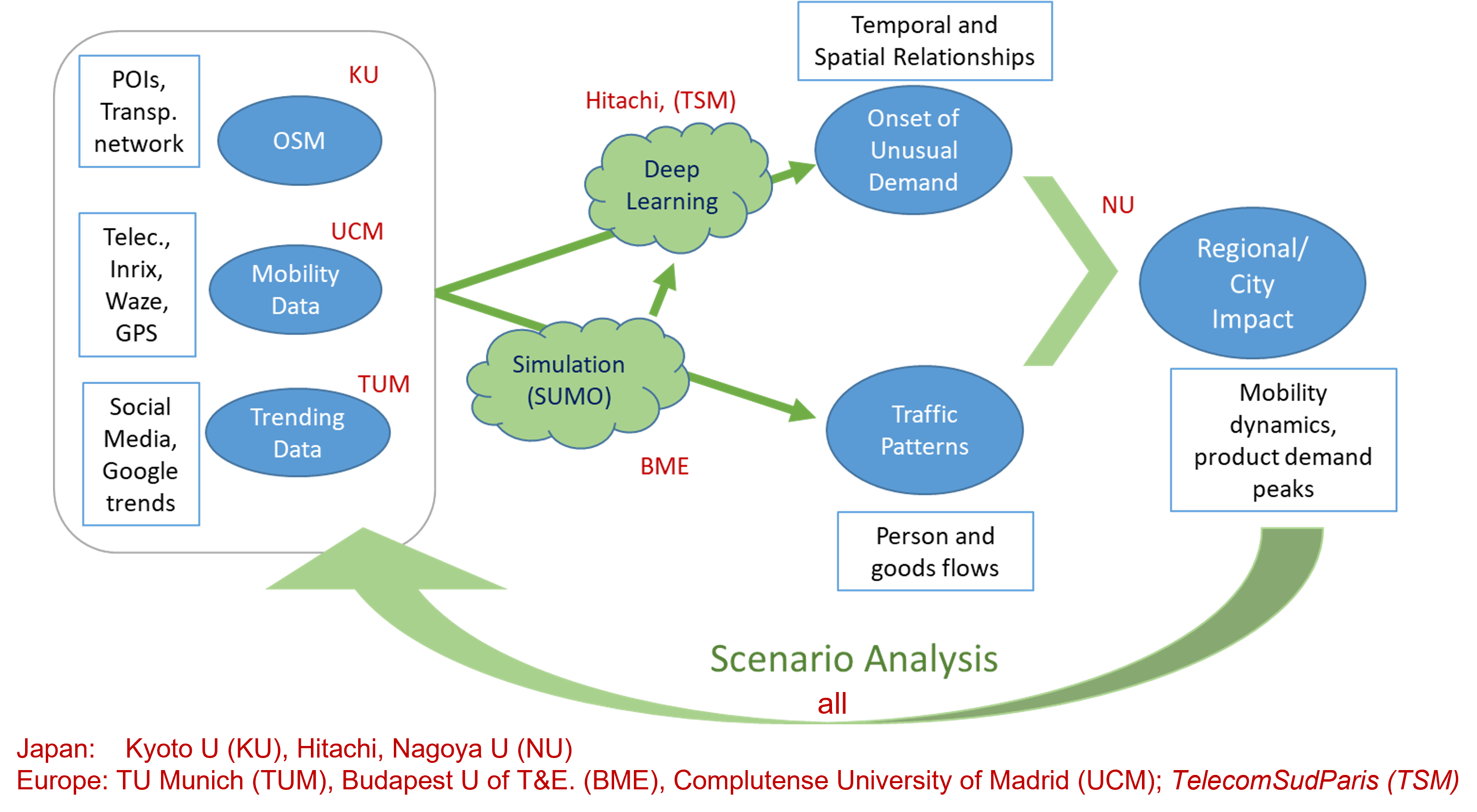About This Project
Deep learning Anticipated Urban Mobility peaks (DARUMA) is an EIG CONCERT-Japan joint project composed of EU research team from TU Munich (TUM), Budapest U of T&E (BME) and Complutense U of Madrid (UCM) and Japan research team from Kyoto U, Nagoya U and Hitachi. The overall objective of this project is to develop a methodology to identify and predict triggers of behavioural change in the context of disruptive events. The study therefore uses data fusion and artificial intelligence to promote resilient and safe societies. Case studies will be conducted in Madrid, Budapest and Kyoto. The first main contribution and outcome of this project is therefore a framework to combine such data to jointly describe mobility patterns. A second outcome is the development of an artificial intelligence platform to learn causal relations within and between these data sets. A third outcome is then a description of how these findings can be used to facilitate a “dashboard” for city planners that show the effectiveness of different policies for mobility peak smoothing.
The following figure illustrates the project flow, as well as the main expertise of the groups involved.
